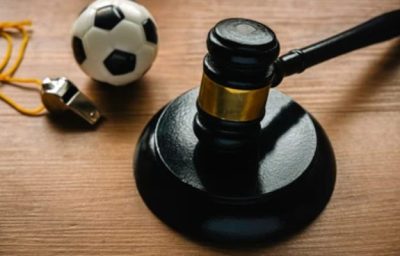Introduction
The sports law in India is one of the lowest talked about laws in India. The sports industry is not only left to the games being played outside the houses but also the games played on the laptop. This gaming industry has grown over the years. The people in the gaming industry are earning more than the people playing the physical sports. The physical sports have to go through the test of doping while it is not applicable to the online gaming industry. The players in this industry are more on the younger side and not only limited to a nation but players playing these games are spread worldwide.
Impact Of Covid
The coming of Covid in the country has increased the gaming industry across the world. The covid came in India during the March, 2020 and is present in the country till now. During that time, the online gaming industry increased much more than any other games across India or the world. The streaming on Twitch or Loco increased of the gamers.
There are different tournaments related to the simulator games which were played. The introduction of F1 Esports tournament, which was held at a specified place with the teams and the players but due to the covid the games are now being played from the home itself. These tournaments have gained so much popularity as the qualifying rounds for the team selection lasts upto a month for the drivers selection by the teams. Accelerate, a game organised by ABB Formula E for the simulator drivers to drive in the tournament and the winner of the tournament gets to drive the original Formula E car, and the winner of the tournament was Frede Rasmussen.
Governing Legislation
There is no specified legislation in the Sports law. The Sports Industry mainly works on the different legal laws and pertaining to acts which include different areas of laws pertaining to contract law, tort law, trademark law and various others. These laws and acts pertain to the issues of players, teams, managers and associations. The other issues under this area pertains to the contracts between the teams and the players, harassment in sports by the players or the management authorities, Broadcasting rights between the organisers and the viewing organisation, Endorsement and Advertising rights issue and Intellectual Property Rights for the team logos and other issues pertaining in the games.
[Image Sources: Shutterstock]
The issue for doping is one of the problems in the sports industry. The sports industry has proper rules and regulations provided by the World Anti-Doping Agency Code which is provided by its agency which is World Anti-Doping Agency (WADA), and the organisation which follows it in India is the National Anti-Doping Agency (NADA) which has its primary aim to follow the code provided in the WADA Code. The main aim is to regulate the dope control program, provide education and conduct research on the harmful effects of doping or using harmful substances and the effect they can have on the body of the athlete.
The sports policies in India are formulated mainly by the Ministry of Youth Affair and Sports. The Department of Youth and Affairs was set up by the Government for the purpose of governing and looking after the sports area of the country and also responsible for giving away the Rajiv Gandhi Khel Ratna Award and the Arjuna Award.
Who Can Be Held Liable For The Doping Violations
There are certain violations if done by an athlete more than once, then the athlete can be held liable for the violation of doping charges. Doping is defined by WADA and NADA follows the same. Some violations include –
- Unable to provide sample for testing.
- Unable to provide himself for the doping control or not available for the test.
- Illegal transportation or consumption of prohibited substances under the annual List issued by WADA.
- Tamper with any doping control process.
National Sports Policy
As there are sports being one of the crucial part of the Indian History, the lawmakers of the nation felt the need to raise the standards of sports across the nation, as back in 1983, the Indian Cricket Team won the World Cup. With this aim for the nation and its athletes, National Sports Policy was passed in August 1984, by both the houses of the Parliament. Though the policy was passed but there was no act formed through. The National Sports Policy, 1984 had some points for the encouragement of the nation but the implementing of the policy could not be done. Due to which National Sports Policy, 2001 was drafted which had three goals, which is as follows-
- The initial goal was to clearly identify the areas of responsibility for all agencies responsible for sports promotion and development. Promotion is essential in the sports industry for all athletes and sponsors.
- The second goal was to identify sports federations that were qualified for coverage under these rules, and then to spell out the procedures that these federations must follow in order to receive governmental aid and assistance, as well as sponsorship.
- The third phase was to establish the eligibility criteria that the government will use to provide subsidies to sports federations. These conditions had to be carefully chosen so that the federations would take them seriously.
Author: Mukund Ranjan, in case of any queries please contact/write back to us via email chhavi@khuranaandkhurana.com or at Khurana & Khurana, Advocates and IP Attorney.
References
- https://www.fiaformulae.com/en/gaming/accelerate
- https://en.wikipedia.org/wiki/Impact_of_the_COVID19_pandemic_on_the_video_game_industry#Esports
- https://ssrana.in/corporate-laws/gaming-and-sports-laws-india/sports-law-faq/
- https://blog.ipleaders.in/everything-need-know-sports-law-india/
- https://www.legalserviceindia.com/legal/article-6074-sports-law-in-india.html




